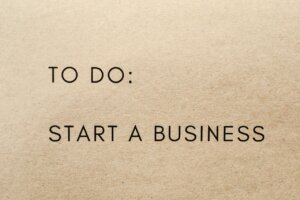Good Strategy Bad Strategy

This fresh approach to strategic thinking begins with tales of battles at sea in the days of Napoleon and continues to explain what kinds of strategies have made the difference for modern companies like Apple, Wal-Mart, Cisco, Starbucks and Wells Fargo.
Author Richard Rumelt shows that many recent high profile failures such as those of Lehman Brothers and Enron resulted not just from a poor strategy or a poorly defined strategy, but from a misunderstanding of what strategy is in the first place!
One acquaintance showed incredible ignorance by saying to Rumelt ““Strategy is never quitting until you win.” Attitudes like that, of course, can only lead to wasted resources and eventual failure.
As Rumelt says, “The core of strategy work is always the same: discovering the critical factors in a situation and designing a way of coordinating and focusing actions to deal with those factors.”
Strategic Thinking: A Comprehensive Guide
Very useful book for strategists. Truly comprehensive because of the multiple of perspectives covered.

Learning to Think Strategically, by Julia Sloan of Columbia University.
This is my favorite kind of book… the kind that has lots of my under-linings and margin notes left over from previous readings! That means I intend to come back to the book now and again for wisdom and guidance about my topics of interest… Strategy and Strategic Thinking.
Professor Sloan’s book traces the history of strategy, differentiates strategic thinking from strategic planning, describes the influence of culture, and introduces five key attributes for learning to thinking strategically. Learning to Think Strategically asserts that learning is the critical link to transforming strategic thinking into a sustainable competitive advantage.
 Read Ann Herrmann’s Whole Brain Business Book to learn an approach to business effectiveness drawing on understanding of the ways we differ from each other. Learn about Whole Brain methodology and the required brain dominance for strategic thinking.
Read Ann Herrmann’s Whole Brain Business Book to learn an approach to business effectiveness drawing on understanding of the ways we differ from each other. Learn about Whole Brain methodology and the required brain dominance for strategic thinking.
I understand the context around me in a different way than you do. Some of us are most moved by thoughts of the big picture. Others look first at the details. For some of us, the we make decisions with our emotions out front. Others are focused on the facts. The “whole brain” approach shows us how to make change happen by leveraging individual differences.
Visit HerrmannSolutions.com and respond to the instrument to see
your preferred style of thinking.
Learn More about the Whole Brain Business Book. here.

Creative Strategy: A Guide for Innovation.
Duggan explains the critical steps to innovate in business and any other field as an individual, a team, or a whole company. The critical step — the search for past examples — takes readers beyond their own brain to a “what-works scan” of what others have done within and outside of the company, industry, and country. It is a global search for good ideas to combine as a new innovation. Duggan illustrates creative strategy through real-world cases of innovation that use the same method… from Netflix to Edison, from Google to Henry Ford.
I also learned a great deal from Duggan’s previous book, Napoleon’s Glance: The Secret of Strategy.

Team of Rivals Doris Kearns Goodwin’s excellent book Team of Rivals explains how instead of bringing in a cadre of leaders whose thinking closely matched his own, Abraham Lincoln made a point of surrounding himself with his political rivals, naming William H. Seward, Salmon P. Chase, Edwin M. Stanton, and Edward Bates – all of whom had opposed Lincoln in a bitterly fought presidential race – as members of his cabinet.
Despite initial misgivings, this unlikely team learned that Lincoln valued their opinions, would consider and reflect on their disagreements and challenges, and would not stick unnecessarily to preconceived notions.
Though the mix of personalities and opinions inevitably led to debate and verbal conflict, Lincoln was able to facilitate and mediate, tapping into a rich variety of ideas in order to find the optimal solution to political and military issues.
Strategy Safari

I have often been asked what book I would suggest to someone wanting an introduction to the world of strategy. This is always the book I suggest, the eminent strategist Henry Mintzberg and his associates Ahlstrand and Lampel do a masterful job of explaining, in plain language, the various approaches to strategy. My favorite section is the authors’ treatment of Michael Porter’s “Positioning School” of strategic thought. While staying “fair and balanced” in explaining Porter’s methodology, you can almost taste Mintzberg’s poor regard for such a deliberate and plodding approach, which stands antithetical to Mintzberg’s own bent to strategy: the Emergent Approach.
Strategy, by B.H. Liddell Hart

The book now called, simply, Strategy, is essential reading for any student of the art and science of strategy-making. Author B.H. Liddell Hart is the best example I know of who not only chronicled history, but shaped it. In 1929, he published The Decisive Wars of History.
Although Hart was a Briton, it is known that his work had greater impact on the pre-WWII military thinking among the German military than on his own countrymen. Among others, the German general Hans Guderian read and digested Hart’s work, which influenced his designs for employing tank (panzer) warfare in execution of the “blitzkrieg” strikes that quickly took the European lowland countries and France.
Erwin Rommel, the “Desert Fox” is known to have read and savored Hart’s books. Rommel’s tank battles with the Allies in northern Africa are often seen as the prototypical Hartian strategic confrontation. Applications of Hart’s insights for modern business are quite evident upon reading Hart’s historical accounts and analyses. For example, to truly understand the art of strategic thinking, it is essential to consider Hart’s notion of the indirect approach.
The Lords of Strategy

Until the 1960s, there were few books or business courses available that focused on the notion of business strategy. Gradually, as the importance of the topic dawned on MBA providers and the business public alike, Strategy evolved as an important discipline of thought for leaders of corporate, organizational and government leaders.
As the field evolved, not surprisingly, so did the cadre of people seeking to make their living teaching and consulting with others in need of better approaches and strategies. With time, the modern consulting inustry was born.
The Lords of Strategy is the story of the four men who invented corporate strategy as we know it and set in motion the modern, multibillion-dollar consulting industry: Bruce Henderson, founder of Boston Consulting Group Bill Bain, creator of Bain & Company Fred Gluck, longtime Managing Director of McKinsey & Company, and Michael Porter, Harvard Business School professor.
The publisher explains that “this book is a revealing account of how these iconoclasts and the organizations they led revolutionized the way we think about business, changed the very soul of the corporation, and transformed the way we work.”
Well, it’s a little more sickening and depressing than that, if you ask me. I have personally seen, for example, PPT slides that an eminent strategy consulting firm used to goad Enron into “out-of-the box” and “break-through thinking.” We all learned, of course, that simply thinking out-of-the-box can lead people into “breaking through” ethics and morals.
Enron paid for this “anything goes” approach with its very existence. The consulting company that egged them on, though, is not only still at it, but is doing quite well for themselves.
Nonetheless, if you’d like to learn how today’s consulting industry came to be the way it is, then I am sure you will find The Lords of Strategy to be compelling, if disturbing, reading.
Wired for Thought

If you are interested in the notion of strategic thinking, then you are certainly interested in the brain, the organ that allows you to think about things, strategic or otherwise.
Author Jeffrey Stibel applied his life-long fascination with neurology and brain science in order to found a series of highly successful businesses. In each case, he applied knowledge about how the brain works to thinking about how the internet should work, since, as he writes “the internet is a brain.”
Stibel explains his fascination with the brain and neurology as a metaphor for thinking about the future of the internet: “When I began to study the emergent internet as a whole, I had trouble finding areas where there were not analogies to the brain. It finally dawned on me that if I wanted to build internet companies, I needed to know everything I could about the brain.”
 Sections of this topic
Sections of this topic














